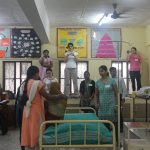This Is a Drill: Developing an Obstetric Emergency Drills Program
By María Belizán, Daniela Colaci, Agustina Mazzoni, Ezequiel García-Elorrio, Sebastián García-Martí, and Fernando Althabe, Institute for Clinical Effectiveness and Health Policy (IECS). This post describes field experience in Ethiopia and India that helped shape the Obstetric Emergency Drills Training Kit, a new free resource for clinicians seeking ways to manage complications like postpartum hemorrhage and pre-eclampsia/eclampsia, the leading causes of maternal mortality globally…read more

